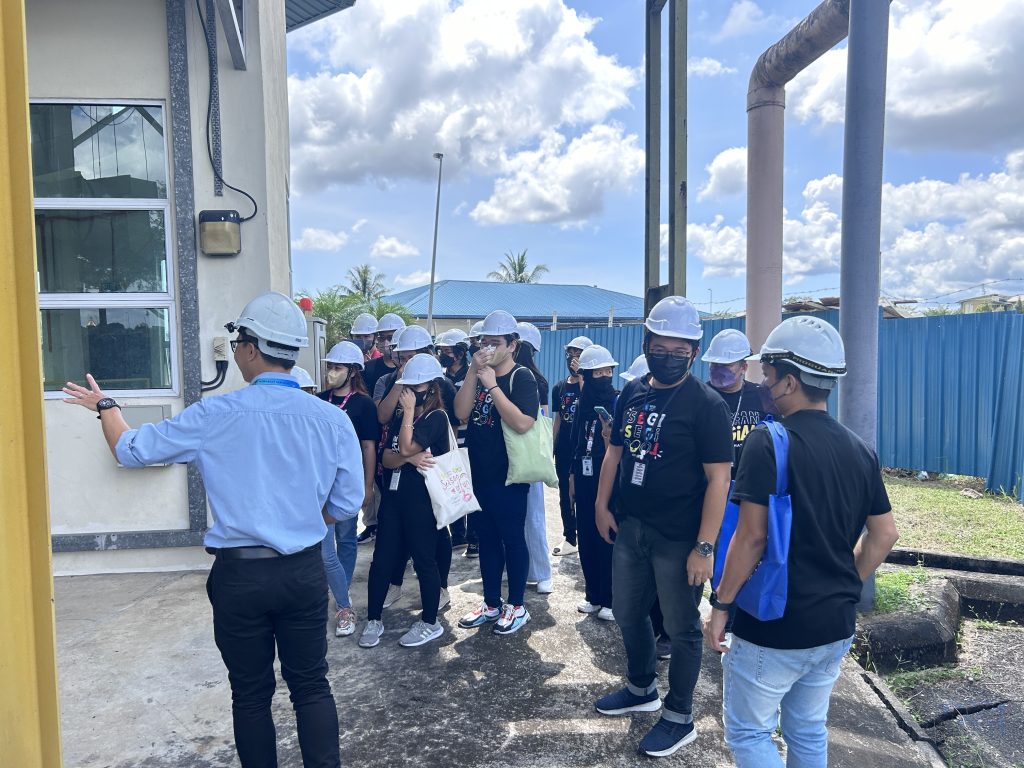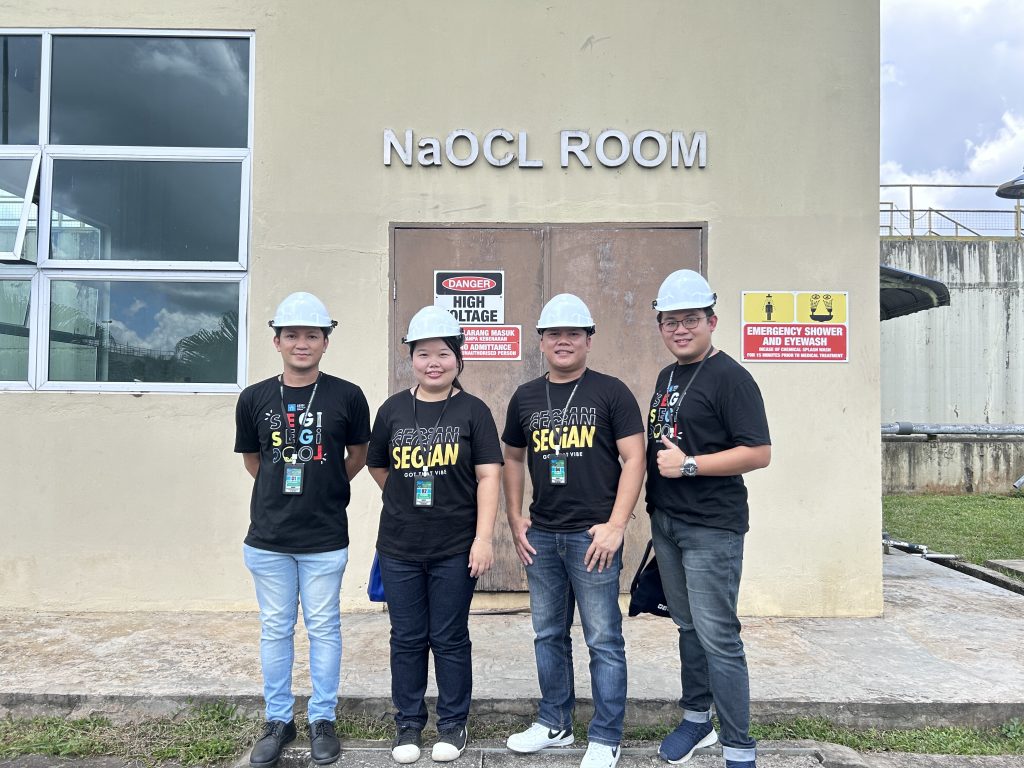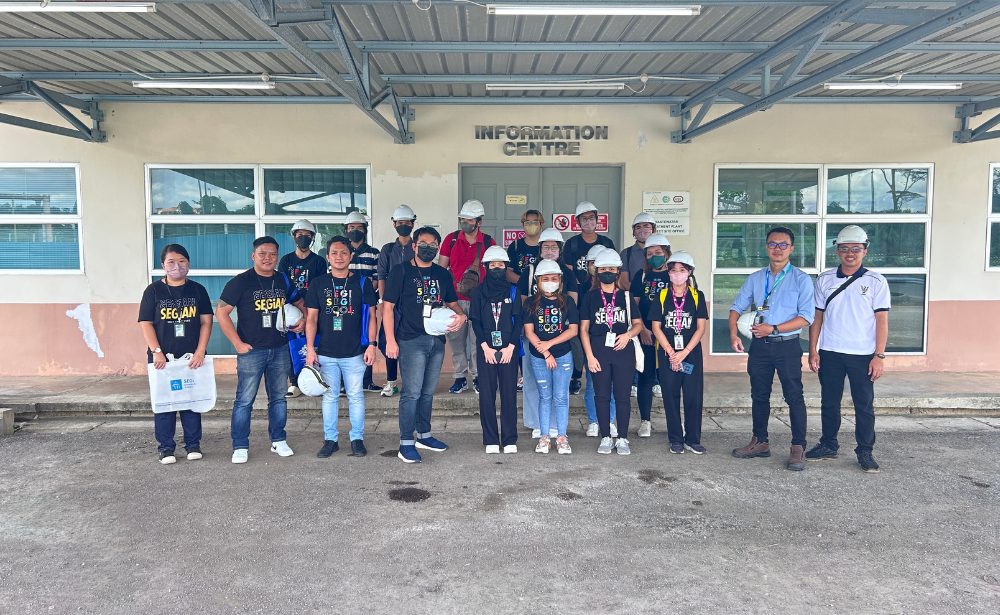In conjunction with Sustainable Development Goal (SDG) 6, which focuses on Clean Water and Sanitation, SEGi College Sarawak organised an enlightening field trip for 25 students and four lecturers from the Faculty of Medicine, Nursing, and Health Sciences. The group visited the Kuching Centralised Sewage Treatment Plant in Petra Jaya to raise awareness about the importance of improving water quality by reducing pollution, eliminating dumping, minimising the release of hazardous chemicals, and increasing recycling and safe reuse globally.
The visit began with a safety briefing followed by an introduction to the Centralised Sewage Treatment Plant. The attendees gained a comprehensive understanding of how the sewage system operates. They learned about the crucial steps involved in the construction of the trunk sewer, which includes the construction of shafts, tunnelling, and maintenance access points, ensuring the centralised system functions effectively.

During the tour, the officer in charge guided the group through various water treatment areas. Students and lecturers were taught to differentiate between grey water (wastewater from kitchens, baths, and laundry) and black water (wastewater from toilets). They discovered that conventional septic tanks only partially treat black water, while grey water is often discharged untreated into drains and rivers. This practice significantly pollutes rivers and waterways. However, with the implementation of a centralised sewage treatment system, both black and grey water are collected and treated to produce clean water.
This field trip effectively built awareness among students about the importance of water usage and conservation. The experience underscored the necessity of centralised sewage treatment systems in reducing pollution and improving water quality. All students provided positive feedback about the trip, recognising its educational value and relevance to their studies.
SEGi College Sarawak’s initiative aligns with the United Nations’ SDG 6, which aims to ensure availability and sustainable management of water and sanitation for all. By engaging students in such practical learning experiences, SEGi is contributing to the global effort to expand water and sanitation support, particularly in developing countries. This hands-on approach not only enhances students’ academic knowledge but also prepares them to make meaningful contributions to environmental sustainability.
The field trip to the Kuching Centralised Sewage Treatment Plant exemplifies SEGi’s commitment to integrating real-world experiences into its curriculum. By fostering an understanding of essential environmental practices, SEGi continues to reinforce its reputation as a leader in higher education and community engagement. This initiative not only prepares students for future challenges but also highlights SEGi’s dedication to promoting sustainable development and responsible water management.


